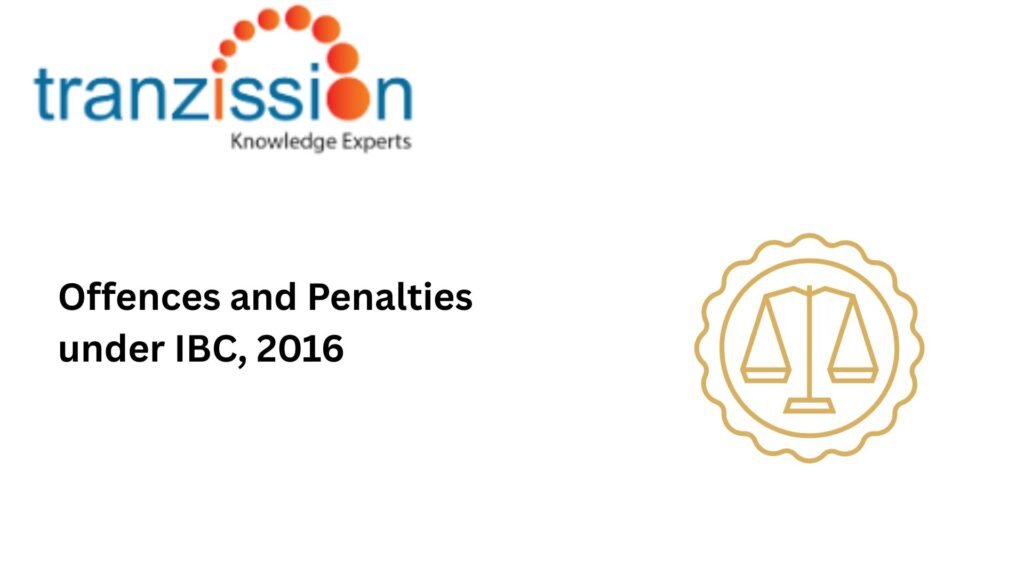Blog
Adopting technology within an insolvency framework is crucial to improve the efficiency, transparency, and accuracy of the insolvency process. Technological tools can lead to quicker resolution times and better outcomes for all stakeholders. Different technologies can be used to improve the resolution process, such as artificial intelligence, Blockchain in Insolvency, data analytics, and cloud computing. […]
A company operating within a Special Economic Zone (SEZ) faces financial distress and enters insolvency proceedings under the Insolvency and Bankruptcy Code, 2016 (IBC). The link between SEZ and the IBC is based on the overriding effect over other legislations, including the Special Economic Zones Act, 2005 (SEZ Act). The IBC is considered the primary […]
The National Company Law Tribunal (NCLT) and the National Company Law Appellate Tribunal (NCLAT) are governed by the Companies Act, 2013, the Insolvency and Bankruptcy Code, 2016, and the Insolvency and Bankruptcy Board of India (Insolvency Resolution Process for Corporate Persons) Regulations, 2016. Both are pivotal in insolvency resolution and the liquidation process of corporate […]
In the insolvency and bankruptcy domain, insolvency professionals (IPs) and registered valuers (RVs) have crucial but distinctive roles within the insolvency process under the Insolvency and Bankruptcy Code, 2016 (hereon forward known as “the Code”). While IPs manage the overall insolvency resolution process, ensuring that it progresses in accordance with legal and regulatory requirements, RVs […]
The core of the success of implementing insolvency laws is the concept of valuations. These Valuation Experts have an important role in determining the fair market of assets and liabilities during the corporate insolvency resolution process (CIRP) and are calculated and analysed by valuation experts. Overview of the IBC Process When the corporate debtor faces […]
Insolvency laws in India have strict regulations regarding document submission, the responsibilities of insolvency professionals, actions of all stakeholders, legal requirements, and procedural necessities. Failing to non compliance with IBC regulations has several consequences, such as monetary penalties and possible imprisonment. Understanding Section 186 of the Companies Act Section 186 of the Companies Act, 2013 […]
Fraudulent practices may impede economic growth, exacerbate income inequality, increase the cost of government services, and lower trust in government, among other consequences. Public sector entities need to adopt advanced CIRP Fraud Detection methods as they allow them to safeguard the general public, maintain their trust, improve the efficiency of their operations, and stay ahead […]
The Insolvency and Bankruptcy Code, 2016 (IBC) was enacted to consolidate and amend the laws relating to reorganisation and insolvency resolution process of corporate persons, partnership firms, and individuals in a time-bound manner. To initiate the insolvency process under the Section 7 of IBC , the applicants should clearly understand their debt, to be defined […]
Under the Insolvency and Bankruptcy Code, 2016 (IBC), a “claim” encompasses any right to payment, whether it is fixed, disputed, or unsecured. Handling Disputed Claims can occur due to disagreements over contract terms, quality of goods or services delivered, non-payment of invoices, or other contractual issues between stakeholders. Several landmark cases under the IBC have […]
The Offences and Penalties under IBC are listed Chapter VII of the Insolvency and Bankruptcy Code, 2016. The inclusion of Offences and Penalties under IBC in the Code are important for preventing fraud, misconduct, and ensuring that there is strict adherence to the Insolvency and Bankruptcy Code, 2016. As per section 236 of the IBC, […]

